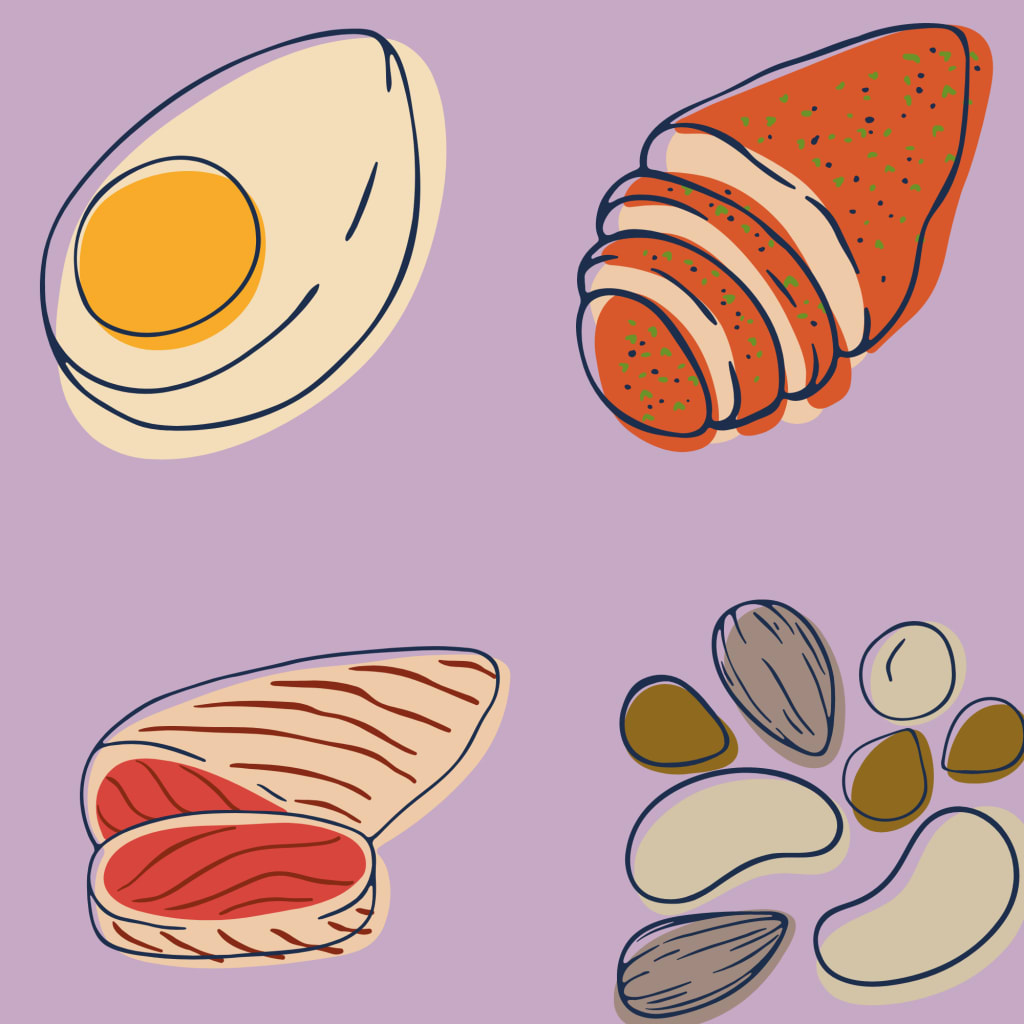
Hello Dahhhlings!!! Today we are going to talk about protein. What is protein? Are you getting enough? Are you consuming too much?
So what is protein? Proteins are a macronutrient and is the main building blocks of your body. They're used to make up muscles, skin, organs, tendons, hair, and nails.
Protein is made up of 20 amino acids, 9 of which the body can't make so they must be taken in. List of amino acids are: alanine , arginine , asparagine , aspartic acid , cysteine , glutamic acid , glutamine , glycine , histidine (essential) , isoleucine (essential) , leucine (essential) , lysine (essential) , methionine (essential), phenylalanine (essential), proline, serine, threonine (essential), tryptophan (essential), tyrosine, and valine (essential). Proteins are either complete are incomplete. Complete proteins contain all 9 essential amino acids.
Examples of Complete proteins are Fish, Poultry, Eggs, Beef, Pork, Dairy, Soy, and Quinoa.
Examples of Incomplete proteins are Nuts, Seeds, Whole grains, beans, and vegetables.
Are you getting enough protein? At least 10% of your daily calorie intake should include protein. On average an adult man should take in about 56 grams per day and an adult woman should take in about 46 grams per day. Although other factors such as weight and exercise also play a factor. To get a better understanding on how much protein you should intake, you can take your body weight and times it by o.36 (Example: 125 pounds x 0.36 = 45 grams). Also, the more you exercise means the more calories you burn. So if you're a person who exercises on a regular basis then you will need to take in more protein than the average person.
Are you consuming too much protein? Your body can not store protein so after your body has had enough protein, it turns it into fat or energy. Consuming too much protein isn't necessarily harmful unless you suffer from kidney failure. Excess proteins contain more metabolic waste which makes it harder on people with kidney disease to filter.
Excess protein intake can also be noted in food regimens such as the keto diet. For instance, in order for the body to enter ketosis, the diet must consist of low carb intake, which can be anywhere from 20g-50g of carbs depending on the individual. Along with the low carb intake, the diet requires a moderate amount of protein with a high focus on fats. Many can mistakenly over-compensate their lack of carbs for excessive proteins, which can lead to Gluconeogenesis, or the digestion of the body's needed proteins. This can lead to the depletion of the body's lean muscle mass, which can be detrimental to overall health and counter the original purpose of ketosis. As a side note, the purpose of the keto diet is to encourage your body to rely on fat, or in this instance, ketones. The body has to be prompted into producing ketones, as it cannot readily digest fat. This is prevented by the body’s production of insulin- under normal circumstances, carbs and sugars are regulated/ transported by the assistance of insulin. Whatever is digested in excess, such as protein will then be stored and can lead to weight gain. However, under the influence of ketosis insulin doesn’t inhibit the digestion of ketones or fat. This produces the fat-burning appeal that has taken the internet by storm. It is important to note that what is considered the right amount of proteins, carbs, and fat greatly is multifaceted in nature, and varies per individual.
In other words, it is best to find out what works for you. Proteins come in many forms and can allow for a versatile diet. Knowing your own body is crucial for overall bodily health.
About the Creator
CiCi
Hello Dahhhlings! My name is CiCi & I write informational content on health & beauty. My passion for this field stemmed from my teens, where I developed an love for all things herbal, medicinal, & natural, which have followed me ever since






Comments
There are no comments for this story
Be the first to respond and start the conversation.